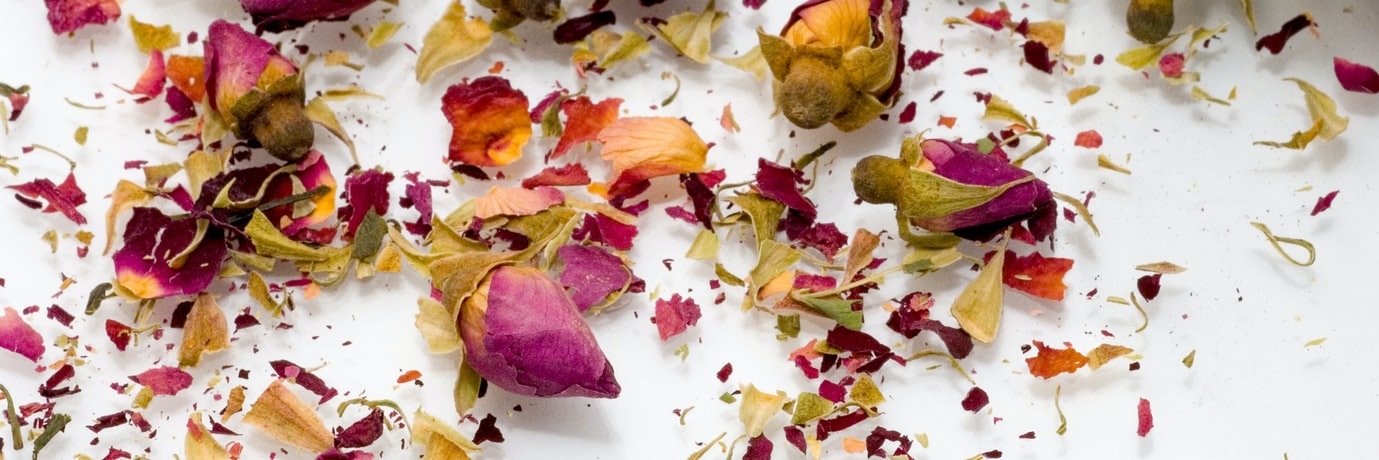Tea
Tea. What a simple name for such a complex flavor. Enjoyed by emperors and peasants alike for millennia, valued for its medicinal and magical properties, and available in countless flavor combinations with even more varied undertones, any discerning connoisseur will recognize tea as the superior beverage.Tea is a popular beverage brewed by steeping various plant materials in hot water. There are countless varieties of tea with various flavor profiles, and many combinations are even used for medicinal or magical applications.
History & Usage
Everyday use
There is a tea for every occasion, and every occasion needs tea!Tea in its various classifications remains a popular beverage in most cultures, consumed for relaxation and as a beverage for social occasions. Dried tea mixtures are readily available for purchase and in some areas is considered a generous gift for special occasions. Tea is also an integral method of Herbalist healing treatments, either orally or steeped and ground into a poultice.
Refinement
Any true tea aficionado is also a part-time Herbalist, as the true appreciation of tea requires an intimate knowledge of how its components are selected and prepared.The preparation of organic material to make tea requires at least a basic understanding of Herbology and its methods, as well as a strong understanding of your tea materials and their properties. While traditionally most tea materials are sold in dry form this is mainly to increase their storage lifespan. Many organic teas exhibit better flavor when prepared fresh, and even in teas where the materials should be dried and crushed before steeping the tea retains its freshness better if stored dried and whole. Leaves and flowers are the most common materials used when making tea, although anything that leeches its essence when steeped could be used. It is important to understand the effects of the materials upon consumption, including their interactions when combining materials, to prevent harmful results including sickness or even death. This is why an understanding of Herbology or Alchemy is a must when experimenting with tea flavors. To make tea the organic material is steeped in a hot liquid, typically water, to draw the flavors and herbal components out of the material and into the tea. Other alchemical processes can also be used on the materials either before, during, or even after steeping to further enhance particular aspects of the tea. The materials steeped to form the tea are then strained from the liquid and set aside prior to consumption. Most teas are consumed while hot, although they can also be steeped at higher concentrations and then cooled to produce and iced tea variant. Lukewarm tea can consumed as-is although most people prefer to reheat or chill the tea to obtain their desired temperature first.
Byproducts & Sideproducts
Tea's medicinal uses are evidence of the divinity of the beverage. What other brews can lay claim to such variety of healing effects?The materials used to steep the tea can be used in to make poultices, either by straining them from the tea or allowing the tea to steep until much of the water has evaporated. The materials are crushed into a paste with a mortar and pestle, then applied generously to the area to be treated and wound with bandaging. Fresh herbs are more potent for crafting poultices and are therefore preferred in most cases. Hot poultices increase bloodflow to the area of application, while cold poultices soothe inflammation, so the temperature must be altered to achieve the desired results. It is recommended to apply poultices overnight when possible to allow the herbs to work undisturbed.
Type
Organic
Odor
Varies, dependent upon selected herbs and their preparation method
Taste
Varies, dependent upon selected herbs and their preparation method
Color
Varies, dependent upon selected herbs, their preparation method, and steeping time and temperature
Common State
Liquid
Related Items
Related Technologies
Not all teas are healthy. The Imperial Night Rose can be used to make a delicious tea with Imperium-restorative powers, but at great personal cost to those who consume it. Those who succum to its addictive properties sooner or later succum to Hallucinatory Imperium Oversaturation
Fyreflower is considered an unusual addition to teas in most parts of Fillimet, but within the cities and villages of the Fyreflower Hills its distinctive spiciness is considered a required addition for any respectable tea.





Explore Etrea | March of 31 Tales
It seemed the only fitting for the "sacred and/or vitally important" material prompt! ;)
Necromancy is a Wholesome Science.